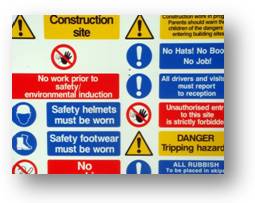AO2 You need to be able to:
Demonstrate application and analysis of knowledge and understanding Command
Terms: These terms require students to use their knowledge and skills to
break down ideas into simpler parts and to see how the parts relate: Analyse,
Apply, Comment, Demonstrate, Distinguish, Explain, Interpret, Suggest
AO3 You need to be able to: Demonstrate synthesis and evaluation. Command
terms these terms require you to rearrange component ideas into a
new whole and make judgments based on evidence or a set of criteria. Compare,
Compare and contrast, Contrast, Discuss, Evaluate,
Examine, Justify, Recommend, To what extent
AO4 You need to be able to Demonstrate a variety of
appropriate skills. Command Terms These terms require you to demonstrate
the selection and use of subject-specific skills and techniques: Annotate,
Calculate, Complete, Construct, Determine, Draw, Identify, Label, Plot, Prepare
Legal
All businesses are subject to national and international laws. The Brazilian legal, taxation and bureaucratic systems are notorious for their restrictions and extra costs on business generally but especially on business start up.
|
Did you know
Room for improvement do you think?
|
When looking at this area of the external environment you should be aware of:
(a) The reasons why certain laws have been passed
(b) The impact of the legal environment on business operations.
Health and Safety legislation
Health and Safety legislation is usually an important part of
government regulation. Business is generally responsible for providing
a safe working environment, a written safety policy and a recognised
training programme for health and safety. Ultimate responsibility for
personal health and safety rests with the individual, but the company
must provide the environment where both are legally met. Take a look at
St Pauls School - can you see evidence of Health and safety
regulations? Make a list/brainstorm in class.
 The
European Union (EU), for instance, now issues 'directives' (all EU
countries must accept these) on working hours, the lifting of heavy
weights, the use of computer screens and the rights of pregnant women.
The
European Union (EU), for instance, now issues 'directives' (all EU
countries must accept these) on working hours, the lifting of heavy
weights, the use of computer screens and the rights of pregnant women.
Like all laws imposed by any government they involve costs for those applying them. However, many firms will exceed their legal requirements as they want to be seen as a caring and safety conscious organisation. This approach may, as a result, attract higher quality staff.
Employment law
The law relating to employment in Brazil is highly complex and favours more the employees than in other countries.This is good for employees but can be restrictive for employers. Laws relating to individual rights cover areas such as:
- Equal pay - the right to equal pay for equal work.
- Sex discrimination - the right to a working environment free from sex discrimination.
- Race discrimination - the right to a working environment free from race discrimination.
- Disability discrimination - the right to a working environment free from discrimination on the grounds of disability.
Laws on discrimination concentrate on terms and conditions of employment and equal opportunities when job vacancies are being advertised. In many countries, for example, it would be illegal to advertise only for a man or a woman for a particular post, unless there are unusual circumstances which demand a person of a certain gender. Similarly, laws in some countries would prevent firms only recruiting people of a particular age.
So how successful have countries been at reducing sex discrimination? The World Economic Forum produces an annual report to assess the current size of the gender gap by measuring the extent to which women in 134 countries have achieved equality with men in five critical areas: economic participation, economic opportunity, political empowerment, educational attainment, and health and well-being. Countries that do not capitalize on the full potential of one half of their societies are misallocating their human resources and undermining their competitive potential. So how did the various countries fare? Follow the link below to see the rankings of the various countries.
Global gender equality
Employment protection
Employment protection concerns all employees. All employees would
like to feel that they have some protection from being unfairly
treated. One major concern is that their employment is secure.
Employers, however, would like greater flexibility to increase or
decrease their staffing levels to meet demand and supply conditions.
Many countries have laws to protect employees from 'unfair dismissal' as well as regulations on redundancy.
Consumer protection
This area of the law aims to protect consumers from unfair practices relating to product quality and especially financial terms. Legislation will differ significantly between countries, but may include laws which:
- Dictate how goods should perform in relation to the quality and functions described by the producer (goods should be 'fit for purpose').
- Prescribe how quantities should be accurate (weights and measures etc.).
- Cover accurate and truthful description of goods and services offered for sale.
- Relate to the amount of credit that can be given by recognised credit agents.
- Make companies responsible for damage caused by one of their products.
- Control food display and safety. This is an area of law that changes rapidly.
|
Did you know
Brazil has one of the most complete Consumer Defense system in the world,
Consumer Rights in Brazil only acquired
visibility after the Constitution of 1988, responsible for reestablishing
democracy in the country after a long dictatorship. Following the US model, the Government issued the Consumer Defense Code (Código de Defesa do Consumidor) in 1991, a law that would organize all the rules to protect consumers. The Code regulates the relations and responsibilities between sellers and consumers, establishing standards of conduct, terms and penalties http://thebrazilbusiness.com/article/consumer-rights-in-brazil
|
Competition policy
This area of policy is where government keeps a watchful eye on corporate behaviour. It is concerned about possibly abuses of power by firms. These may include:
- monopoly behaviour
- mergers and takeovers
- restrictive practices.
Research shows that competition leads to greater choice, quality and lower prices and so government is charged with monitoring business to make certain it lives up to these expectations. Governments ensure that anti-competitive (anti-trust) practices are prevented.
It is argued by some economists that modern, global capitalism helps control business and makes them act in the interest of consumers, so should be allowed to self-regulate. They are open to greater competition and so must be able to attract custom by offering quality at affordable prices. However, others believe that self-regulation is inadequate to prevent business taking advantage of their power.
 1.5 STEEPLE Analysis -
1.5 STEEPLE Analysis -